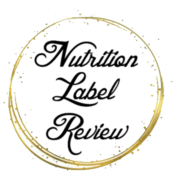In recent news the company Keurig Dr. Pepper, now the parent company of Dr. Pepper, has been found by the 9th circuit appeals court that it did not intentionally mislead customers by using the term “diet” to describe its soda.
The decision was filed December 30th by Judge Jay Bybee that California resident Shana Becerra was unable to show that a consumer would associate drinking diet soda with health benefits. Becerra had sought legal action claiming that the company misled consumers with the word “diet” when numerous studies show aspartame, the artificial sweetener used, can cause weight gain and has zero benefits to weight loss. The judge however ruled that there is a fine line in what is truly deceptive and companies are not at fault if a consumer unreasonably interprets the term, as long as the company itself makes no claims that are intentionally misleading.
This is one of many lawsuits that soda companies have faced over the term “diet”. None of which have been successful so far. The ruling in the Diet Dr. Pepper case exposes how difficult it is to prove “intentionally misleading”. The dictionary definition of “diet” states the word means fewer calories than the regular version, and it is that definition that the courts favored over the word conveying health claims of any kind. The soda companies have repeatedly stated that their interpretation of the word is not to promote health claims and never will be.
So, where does that leave everything?
The gray area “not false or misleading” within the regulations is where are the legal battles are stemming from. However, the Food and Drug Administration is unlikely to update its definition of the word “diet” due to the legal actions. There is a trend in the industry for more natural type products as a result manufacturing companies are beginning to move away from artificial sweeteners and limit use of terms such as “diet”, so maybe that will resolve this issue for consumers.
As a manufacturer the products you place on the market need to be safe and not intentionally misleading, which is why it’s important to do a risk-assessment on your packaging and understand the market you are entering. But it’s also important that consumers use common sense when selecting products for themselves.
If you are a manufacturer with products going to market and need help with claims and a risk-assessment, we are here to help! Contact us today for a quote!

